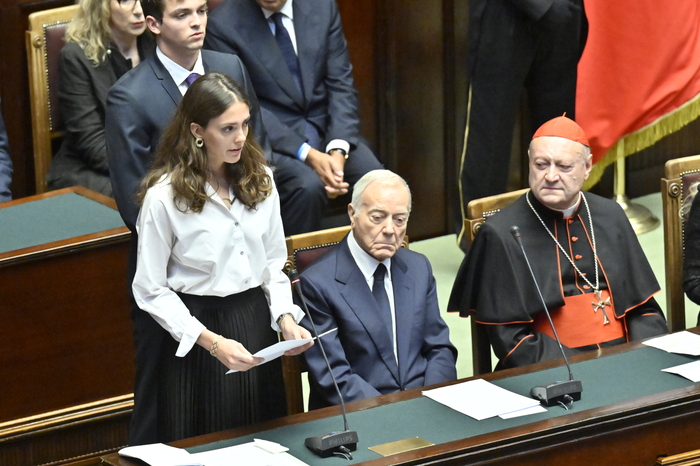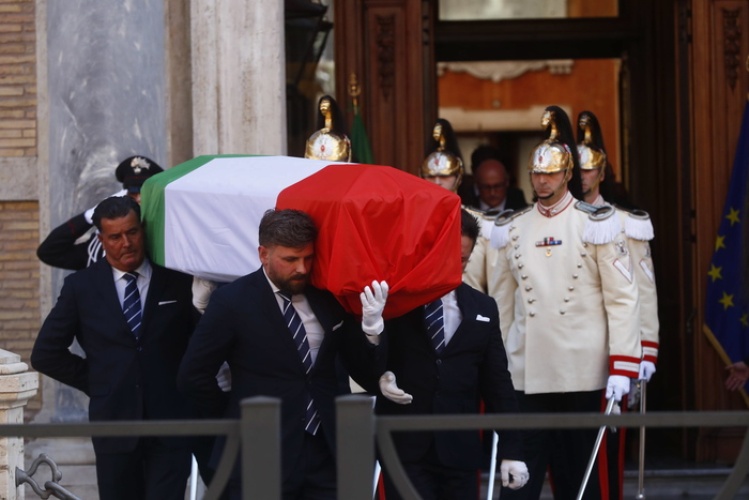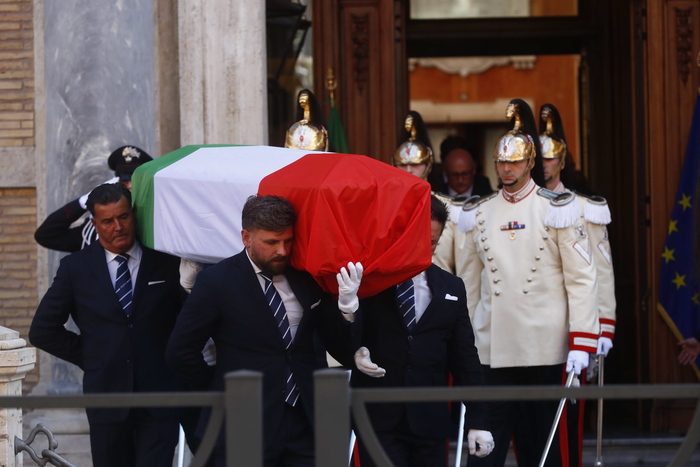Italian President Sergio Mattarella, French President Emmanuel Macron and German President Frank Walter Steinmeier were among the officials present.
“President Napolitano always stood by his political past, his roots, the values in which he believed, with pride,” Senate Speaker Ignazio La Russa said at the funeral.
“As I recalled in this House at the celebration of his 70th year of parliamentary activity, Giorgio Napolitano was an example of culture turning into politics and political culture turning into an institution.
“As Head of State, he led the Nation, embodying the values that are the foundations of our Constitution.
“Of course, like all great leaders, he had confrontations and conflicts in the political arena, including some rough ones.”
Lower House Speaker Lorenzo Fontana described Napolitano as “one of the most important figures in the history of the Republic” during his address at the funeral.
Napolitano’s granddaughter Sofia Napolitano was unable to hold back the tears as she paid an emotional tribute to her grandfather.
“Giorgio Napolitano was a leader, a politician and a formidable, caring man,” she said in the Lower House.
“He was always present for us, he listened to our problems actively and with understanding, even though he was busy with the country’s problems.”

Napolitano’s granddaughter Sofia Napolitano during her tribute. (Photo: ANSA)
Born in Naples on June 29, 1925, Napolitano served as the 11th president of the Italian Republic from 2006 to 2015 and was the first head of state to be elected for a second mandate in 2013, as well as being the country’s first post-Communist president.
A former militant and leader of the reformist wing of the Italian Communist Party (PCI) until the establishment of the Democratic Party of the Left (PDS) in 1991, as interior minister in the 1996-1998 centre-left government of Romano Prodi he gave his name to Italy’s first comprehensive immigration law, the so-called ‘Turco-Napolitano’, in 1998.
A law graduate from the University of Naples in 1947, Napolitano was first elected to the Lower House in 1953 and went on to represent his native Naples constituency almost without interruption until 1996.
His dominance of the political scene in Italy - and especially a key role in birthing the emergency Mario Monti-led government amid a sovereign debt crisis in 2011 - earned him the nickname King George.
This was not affectionate for many on the right who said he helped engineer the end of Silvio Berlusconi’s final government, allegedly colluding with European authorities.
During his long prominence in the PCI he often broke with party orthodoxy and criticised the Soviet Union, in particular over its invasion of Afghanistan in 1980.
All flags on public buildings and on Italian diplomatic and consular representations abroad were being flown at half-mast on Tuesday, which has been declared a day of national mourning.
Napolitano will be buried in Rome’s Non-Catholic Cemetery.
English poets John Keats and Percy Bysshe Shelley, Russian painter Karl Briullov and Italian Marxist Antonio Gramsci are also buried there.
ANSA











